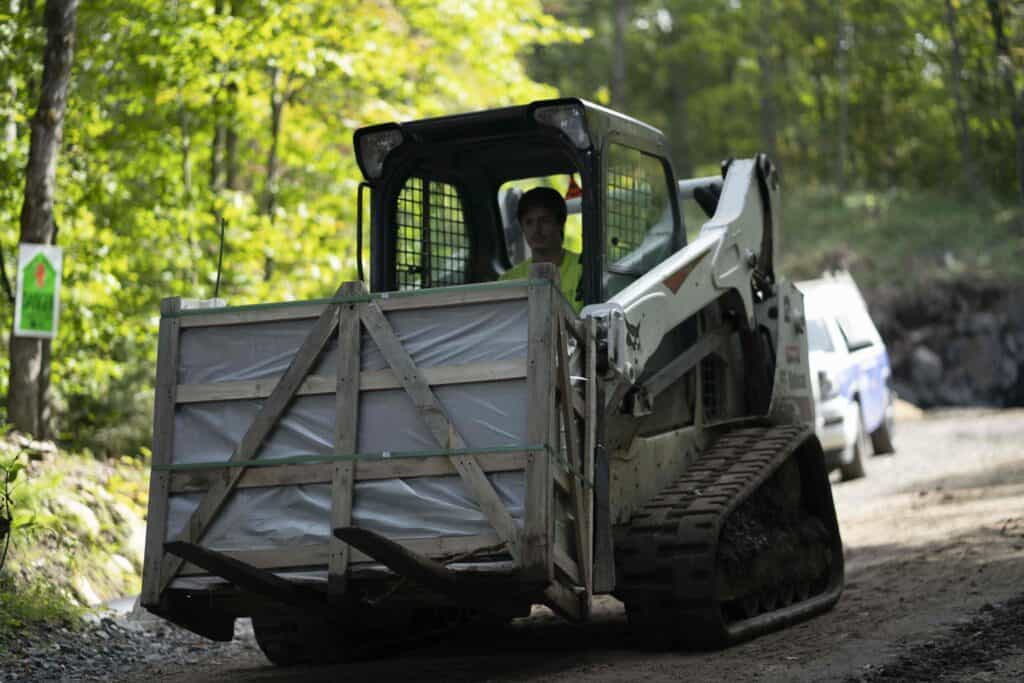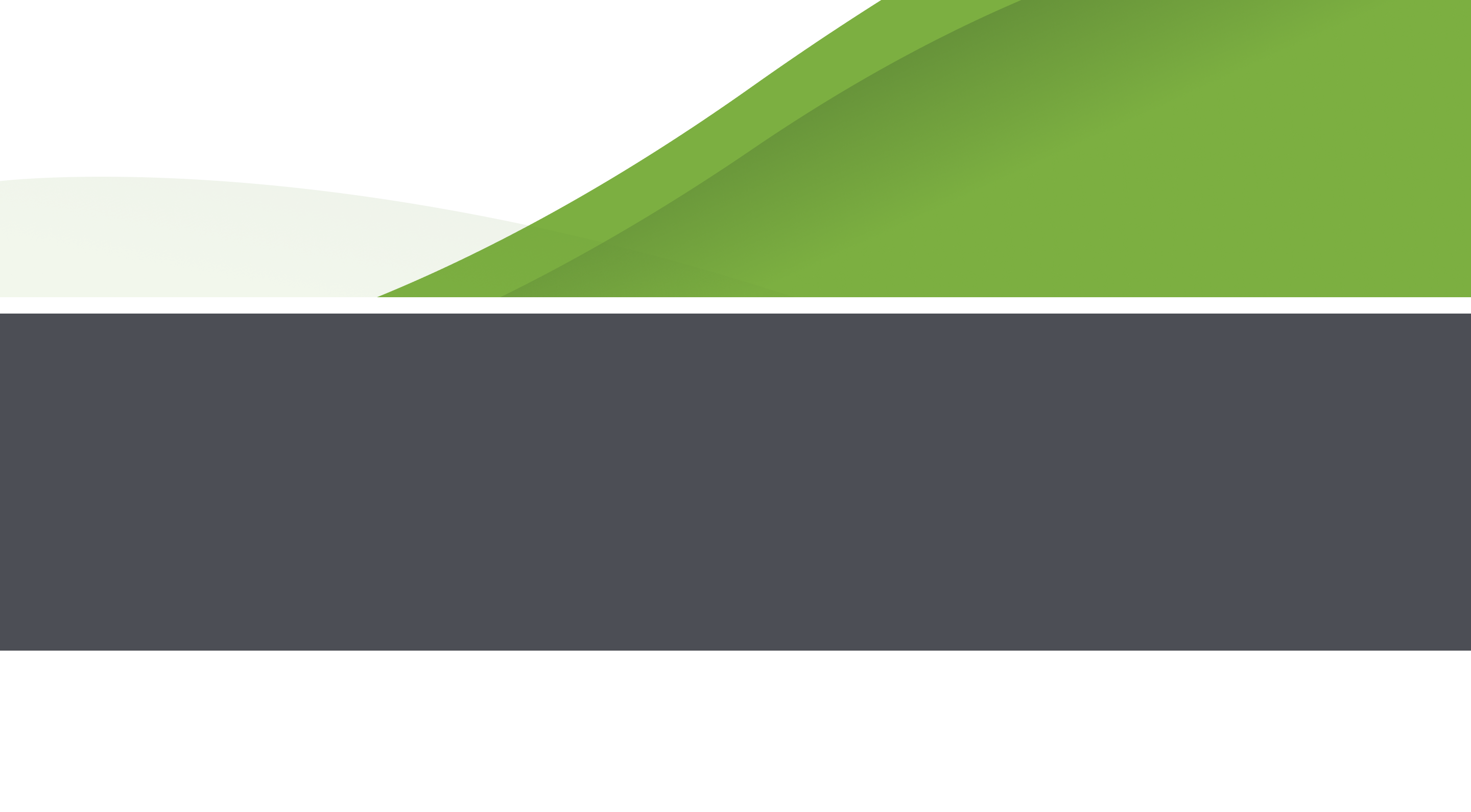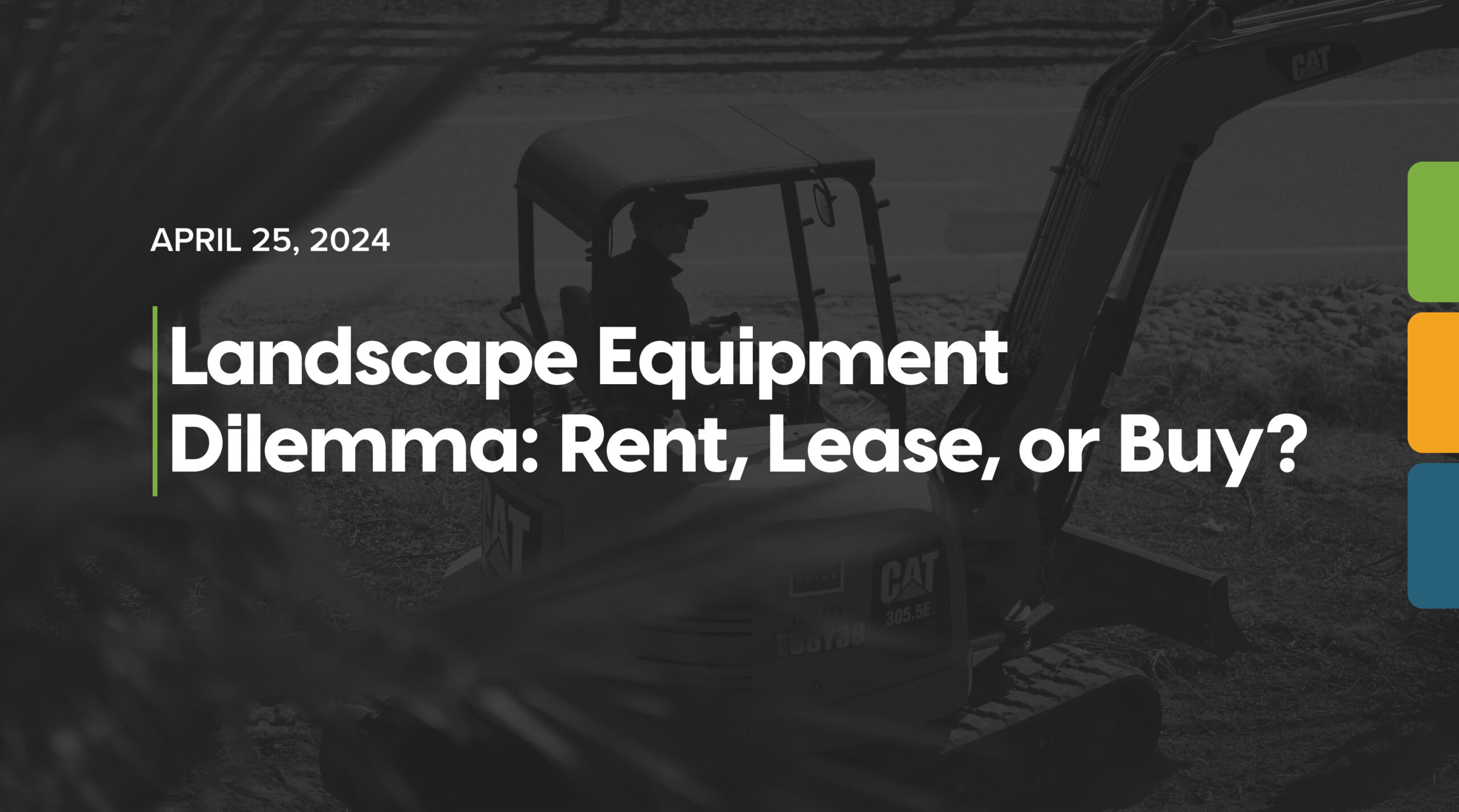There’s no one right answer to whether you should buy, lease, or rent equipment. The right approach depends on your work pipeline, cash flow, and personal preferences. So let’s take a look at some of the pros and cons.
Renting landscaping equipment
What are the pros of renting landscaping equipment?
- A low level of commitment. If you need equipment for a one-off project that has some special requirements, it makes sense to rent and use the equipment for a short time.
- Low to no upfront costs. Often, you can rent equipment with no extra cost than the rental price. You also are likely not responsible for routine maintenance or repairs that don’t happen due to employee negligence.
What are the cons of renting landscaping equipment?
- You can’t put your branding on the equipment. Large machines can perform double-duty as a billboard for your company and services. Rental companies won’t let you repaint or apply your branding to their property.
- It can be more expensive in the long run. If that project you’re renting for runs long, or you need to re-rent down the line to make adjustments, you’ll pay out of pocket for that use.
Leasing landscaping equipment
What are the pros of leasing landscaping equipment?
- Lower upfront cost. It’s important to maintain good cash flow, and taking on a lease is much easier than buying outright.
- Upgrade flexibility. When your lease is up, you can look at leasing a newer version of the equipment, potentially improving efficiency and workload capability.
What are the cons of leasing landscaping equipment?
- Potential for higher monthly costs. Because there wasn’t a huge buy-in, your monthly payments might be quite high.
- Maintenance obligations. You might be liable to fix equipment before the lease ends, meaning you’re spending money to fix someone else’s property.

Buying landscaping equipment
What are the pros of buying landscaping equipment?
- You own it. The equipment is yours to do with as you see fit. You know that you’re keeping up with safety standards and that the machine will be in good working order when you need it.
- You can sell it. Because it’s yours, you can sell it if you need to. Maybe your business is shifting away from the work you need that piece of equipment for. You can sell it to another landscaper to bring in some extra income.
What are the cons of buying landscaping equipment?
- The price. Big, upfront costs can be tough to deal with. And if you need to take a loan, you also need to factor in interest payments. You’re also owning the equipment at the time it loses the most of its value.
- It’s a commitment. The equipment is yours, including all repair and maintenance costs. Eventually, the piece of equipment will be outdated, eating into potential productivity.
The decision to buy, rent, or lease is an important and personal one. Only you know which option is best for you. If you choose to buy, you might have to decide whether to buy used or new. Of course, cost is the main factor here. But you should also consider your company’s image. If you’re using equipment that looks junky, potential clients will likely think you do cheap or subpar work. If you buy used equipment, be sure you can spruce it up before it goes out to a job.
Mark Bradley, LMN Founder and CEO, and Janna Bradley, LMN CXO, held a webinar where they discussed this topic in greater detail. Download the webinar to learn more!
Watch the Webinar!



